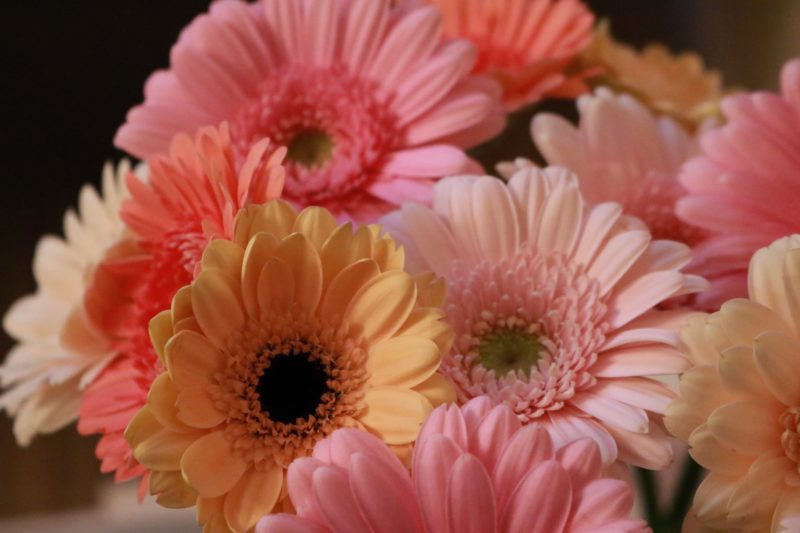
Your first Valentine’s Day after the death of your spouse can seem an insurmountable and depressing holiday. It’s true that holidays in general can be stressful times for people who are grieving, but some holidays might seem to be a bit more difficult than others. For many people, that includes Valentine’s Day. It’s easy to understand why: the focus on sharing special memories with family and other loved ones can remind us sharply that someone we miss dearly isn’t here to celebrate with us.
Valentine’s Day and Grief
Valentine’s Day can be especially difficult, no matter how much time has passed. Even if you and your loved one didn’t celebrate Valentine’s Day in a traditional sense, the focus of the holiday can be distressing. Valentine’s Day and grief can be complicated.
Valentine’s Day centers on the theme of being together. Whether that’s with a romantic partner, a friend, or a family member, the entire crux of the holiday is to celebrate those you love. When someone you love is no longer alive, Valentine’s Day might seem to be an impossible holiday.

Your First Valentine’s Day After the Death of Your Spouse: A Few Ways to Cope
While we won’t pretend to be able to erase the pain that you feel as you grieve, we do want to encourage you to reframe this holiday in a way that might offer you a bit of comfort. To that end, we humbly offer these suggestions as alternate ways to celebrate the holiday as you grieve the loss of your loved one:
- Spend time with family or friends. The idea here is to not isolate yourself. Ask a friend to dinner. Take your grandchildren for hot cocoa. Ask your sister to join you for happy hour. The “what” of the invitation isn’t as important as the “why,” which is to share time with someone you love.
- Ignore the “traditions.” If you do go out with a friend or family member, try to look past all the hearts and flowers. There is no rule that says we all have to celebrate a holiday the same way. Instead, flip this tradition on its head and do something that will make you feel good. If that means buying yourself flowers, grab the bunch that makes you smile. If that means offering flowers to someone else, think outside the box. Maybe give your children a plant (orchids, kalanchoes, and African Violets are beautiful and flourish indoors) or give each of your grandchildren a Gerbera daisy or bunch of hydrangea.
- Create Your Own Traditions. Consider the flowers you might buy for your children, grandchildren, or friends: you might turn it into a new tradition that they look forward to every year. Or you could visit your church to light a candle for your loved one, or make one of their favorite recipes, or listen to a song they loved.Creating a new tradition can help those who grieve because it helps to refocus our energies and thoughts. It’s not an erasing of the memories you hold of your loved one, but it is a way to allow a bit of relief into the grieving process.
- Treat Yourself. One way to “celebrate” Valentine’s Day when you are grieving is to focus your attention on yourself. Treat yourself to something that feels good. That might be a massage or a pedicure. Or you could treat yourself to a special meal out, a movie, or an afternoon in a bookstore. Think of the things, the activities that bring you joy and choose one to focus on that day.Self-care is an important part of the grieving process, so remember that this option should feel caring, not imposing. If staying home to read or watch a movie sounds more comforting, opt for that. Travel, if that’s within your realm of possibility and something you’d like to do. The point is to treat yourself as your own beloved.
- Reach Out To Others. Another way to deal with grief at Valentine’s Day (or any day) is to turn your attention to serving others. Is there an organization you believe in that needs volunteers? Volunteer! Studies show that doing good for others can help mitigate grief. It can also help get you out of the house and interacting with others without the focus being on you and the grief you feel.
- Honor Your Loved One. Sometimes the only antidote to your grief on Valentine’s Day is to honor your loved one. You might call your family together to share a meal and memories of them. Or you might choose to honor your loved one on your own by doing something you once did together. No matter the activity you choose, carrying the memory of your loved one with you on holidays and other special days can help you feel less alone.
Valentine’s Day Quotes
Sometimes it helps to know that others have experienced grief and can put it into words more easily than we can. Here are a few Valentine’s Day quotes about grief that we hope bring you comfort:
Unable are the loved to die. For love is immortality.
Emily Dickinson
Death ends a life, not a relationship. All the love you created is still there. All the memories are still there.
You live on in the hearts of everyone you have touched and nurtured while you were here.
Morrie Schwartz
It is love, not reason, that is stronger than death.
Thomas Mann
Those we love don’t go away, they sit beside us every day.
Liane Moriarty
Life is eternal; and love is immortal; and death is only a horizon; and a horizon is nothing save the limit of our sight.
Rossiter W. Raymond
What we have once enjoyed we can never lose. All that we love deeply becomes a part of us.
Helen Keller
We have worked with families for generations as they mourn the loss of their loved one. We are here to support you and your family as well. Reach out anytime.



Recent Comments